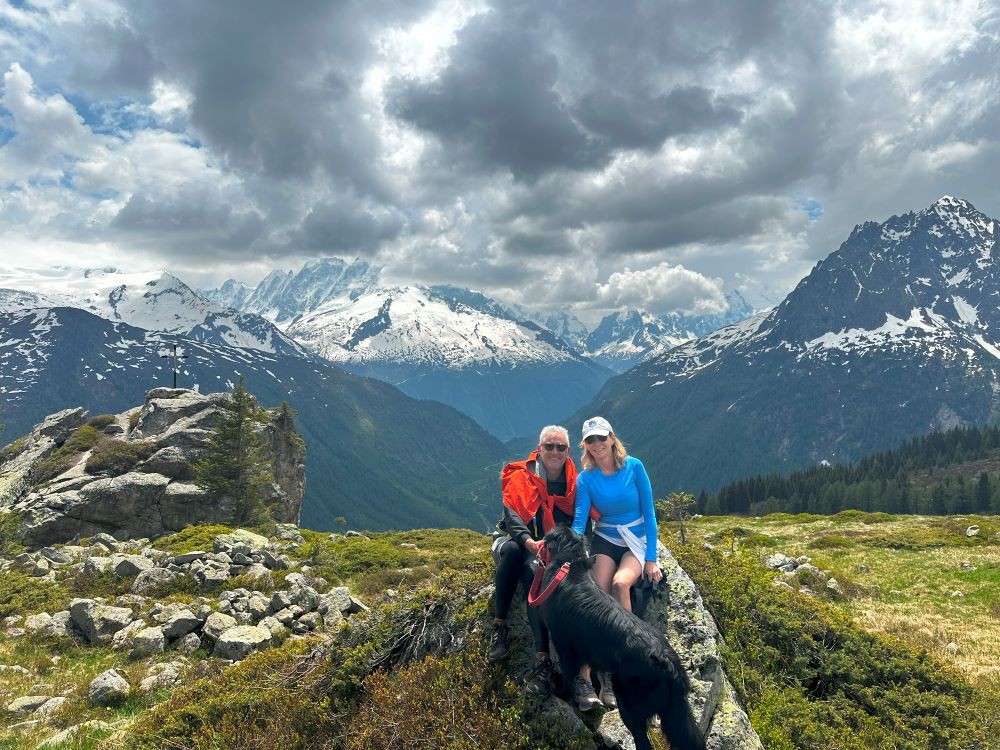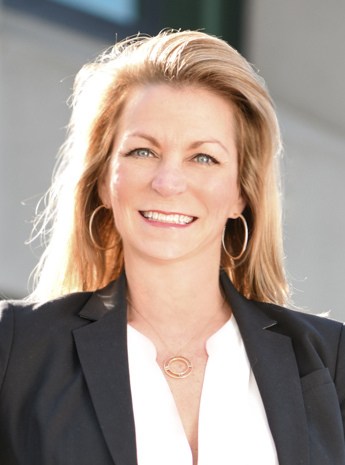After living and working remotely in the French Alps for three months, I’ve returned just in time to enjoy the spring season at my home base in Sausalito, California.
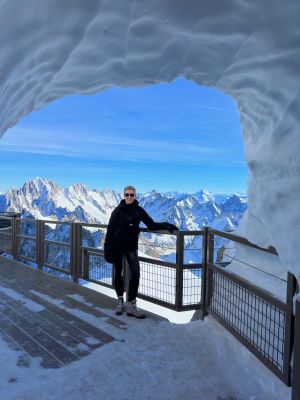
When I announced to my LinkedIn network back in early December that I was moving to France to work remotely, I received dozens of messages from connections—and from complete strangers—saying, “You are living my dream!”
Like many of those comments mentioned, for years I fantasized about moving to another country to live and work remotely. Of course, moving to the French Alps to live, work, hike and eat (truth be told, it was eat, eat, live, eat, work, eat, eat, hike, eat some more) is undoubtedly a privilege—a privilege that being in this industry for 20 years has afforded me. And given that my retired partner had set his sights on an extended ski vacation, taking that leap all made sense a little more than three months ago.
But that is not to say it was easy or that the big move came without challenges that I hadn’t anticipated.
There are questions I realize I maybe should’ve asked myself sooner. What does “living your dream” mean in reality? How do you prepare? What should you expect?
Often, the gaps between fantasy and reality can lead to very different experiences. So, I’d love to share more about my experience with you all, and to give some recommendations for how to prepare to live your dream abroad when you are ready.
[Related: Lone Star to L'étoile: 8 Tips for Planning On-Trend Customer-Centric Luxury Experiences]
Nurture Your Network
We all want to do business with someone we know and trust. It taps into our human desire for certainty and reliability. Any time we have the opportunity to engage with someone we know, someone we have established rapport with or who has a proven track record, it reduces our perceived risk in any situation.
In our complex events world full of constant change and uncertainty, trust is crucial. It allows for open communication, partnership, innovation and respect. Partnering with someone you know and trust also allows for operational efficiencies, from contracting to design to execution.
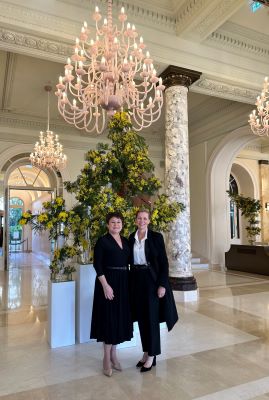
For success in this industry, regardless of what continent you live on, building, growing and nurturing your professional network is the top priority. I have spent a significant portion of my career actively volunteering and serving in various leadership and board positions with MPI, Corporate Event Marketing Association (CEMA) and most recently, as a board member of the Society for Sustainable Events.
Through my participation in these industry organizations and designing and executing global corporate events around the world, I’ve built a strong network of contacts composed of colleagues, clients and hotel and vendor partners.
The impact on our networks following the pandemic still lingers today. Local industry organizations still struggle to rebuild their membership and participation back to pre-pandemic levels. We’ve missed out on years of in-person networking and the ability to nurture those personal relationships face-to-face, which is, after all, what this industry is built on. Perhaps that’s the one thing that AI can’t impact—our need to build relationships and trust in person.
My network of former colleagues, long-time industry friends and even new connections were invaluable in making my three-month move a success on many levels. They made introductions to fellow event marketers, hotels, venues, DMCs and Europe-based industry leaders in new cities and regions that I otherwise may have struggled to make on my own.
Laurie’s Lesson: Dedicate time to growing your network. This can be as simple as supporting industry organizations, volunteering, sitting at a registration desk and meeting other participants, or facilitating a roundtable discussion. Connect and follow up with those you meet via LinkedIn and email. Approach those conversations with a “how can I be of service” strategy. How can you help connect those you know? How can you support someone with their job search? How can you direct someone to a trusted resource that you’ve successfully used? If you support and nurture your network, believe me, your network will in turn support you.
[Related: Lone Star to L’étoile: People and Places From the Chamonix Mont-Blanc Valley]
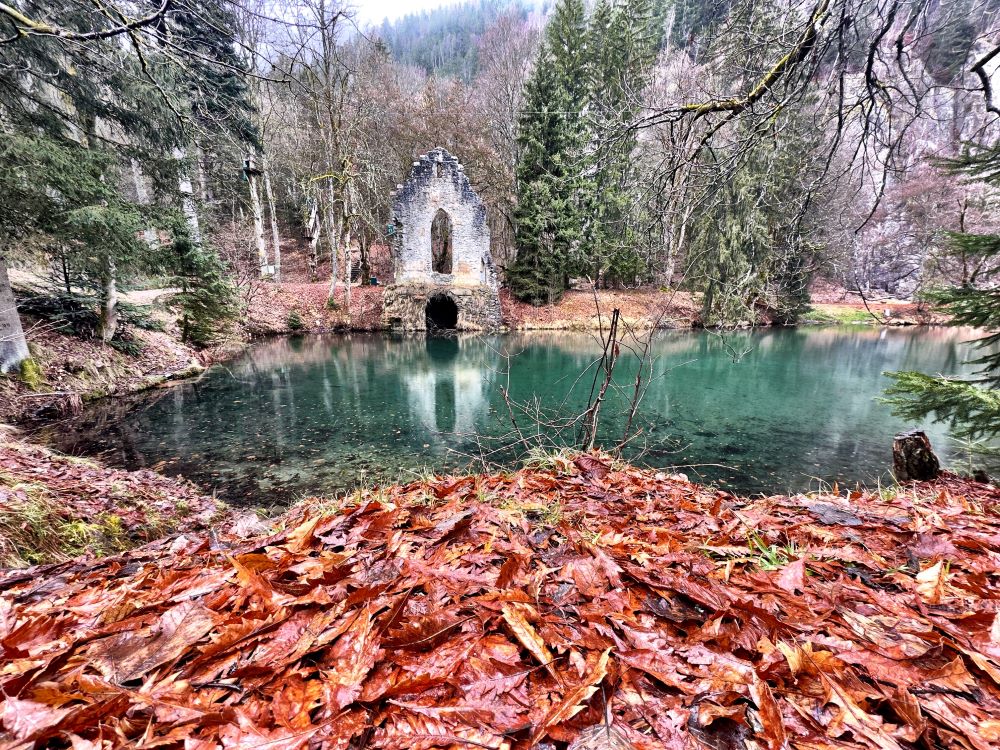
Establish a Daily Routine
Navigating time zones and establishing a daily routine—especially with a nine-hour time difference—is not for the faint of heart, but is mandatory. Every evening as my day was winding down in France, everyone else in the U.S. was just hitting the snooze button.
For me, establishing a daily routine was vital to successfully navigate working remotely. While living abroad, I’d check my email and Slack channels when I first woke up so I could cover any issues that came up while I was asleep and address them immediately before connections in the U.S. shut down for the night. Then, I’d head out for a one- to two-hour morning hike or snowshoe, shop at the market, grab a coffee with local friends and be home by mid-afternoon to prepare for calls and focus on project updates. Calls, emails and Slack channels were in full swing by 5 p.m.
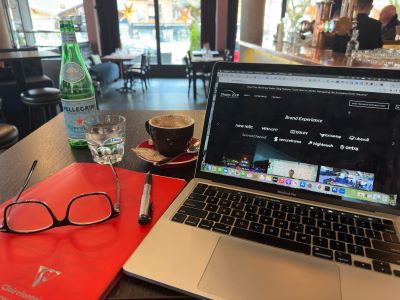
In the beginning, this was an incredibly difficult routine to adjust to. If you know me, then you know I’m a morning person. I’m usually up on the West Coast and replying to emails at 6 or 7 a.m. and feel that I do my best work between 7 a.m. and 3 p.m. Late afternoons and early evenings are usually reserved for inbox clean-up and outlining my priorities for the next day.
Therefore, starting my workday at 5 p.m. while in France was brutal and initially, my brain and body rebelled. I was mentally fuzzy, my decision making was impacted and I often overextended my physical energy earlier in the day.
So, I made changes.
Laurie’s Lesson: When possible, I scheduled my most important meetings in the early evening (5 p.m.-7 p.m.). I also recorded calls and leveraged AI to organize action items, clean up email communications and outline stakeholder discussions so I had a succinct follow-up list for the next day. I shifted when I ate and what I ate to balance my energy levels. This ensured I wouldn’t be rolling out of a late, rich and lengthy traditional French dinner into call that required me to be at peak performance and multi-task a large volume of deliverables.
Stay Connected
My partner and I lived together in France, I had several local friends and I met event and hospitality contacts in Chamonix, France; London and Cannes, France. However, living in a new city and country with a different culture and wildly different lifestyle sometimes felt lonely.

The reality of working remotely overseas means you are awake when your day-to-day friends, family and colleagues in the U.S. are asleep. You have to be very proactive in scheduling regular video meet-ups and coffee time to stay connected. I scheduled coffee chats and meet-and-greets with local industry referrals to share stories and challenges and gather insights.
In Chamonix, work and careers are often seen as secondary—even by locals—with the primary emphasis on enjoying alpine adventures and experiencing the unique mountain culture. This type of a lifestyle was a big shift, too, as it introduced me to a whole new type of work-life balance.
Having a constant stream of U.S. friends and family visiting while I was working remotely from France was especially difficult as well. They were on vacation, but I was working. I was the proverbial “buzzkill” who started working in the early evening and had to decline afternoon outdoor adventures and dinner invitations.
Laurie’s Lesson: Set expectations in advance with your partner, family and friends around your schedule and work priorities each week. When possible, find a quiet, private location either in your home or at a desk in a nearby co-working space that’s open through the early evening, can accommodate uninterrupted video calls and allows you to concentrate on projects uninterrupted.
[Related: Lone Star to L'étoile: Navigating the European Event Industry]
Have a Growth Mindset and Ask for Help
To be successful event marketers, we must be proactive, adaptable, flexible and resilient. These traits are also critical when pursuing your personal goals and dreams.
As you pursue your dream, whether it’s working in another country, reaching for a promotion or starting a business, it’s important to open your mind to growth and be willing to learn, ask for help, make mistakes and continually adjust your path.
Many of us don’t excel at asking for help and seeking advice. We are used to getting hard things accomplished, often despite roadblocks, without resources or a supportive infrastructure.
However, allowing ourselves to be vulnerable, admitting we can’t do and know everything, will result in incredible personal and professional growth.
Laurie’s Lesson: Reach out to your network, let them know what you are trying to accomplish, ask for help and introductions, solicit advice from local industry organizations and their leadership, volunteer and seek insights on potential challenges you might encounter.
Trying anything new in life can seem daunting, and it’s guaranteed not to go exactly as you’ve planned, but the experiences can enrich your career, deepen relationships and deliver incredible personal and professional growth.
At least it did for me, which makes me confident the same will happen for any of you.
Merci beaucoup mes amis, Laurie



